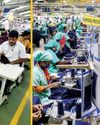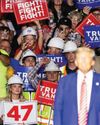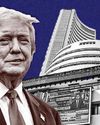Prabir Dey’s day starts in the morning and often ends at mid-night.

He can’t afford leisure but he values his job as a courier boy for a food delivery start-up. He is one among millions of young Indians who, armed with their smart-phones and motor cycles, deliver nearly anything and everything to online customers. India's app-based economy is expanding rapidly.
A surge in the popularity of apps to procure a whole lot of things – from food, transport, retail goods to services including insurance, health and medicines – provides a welcome avenue of employment for many as India's unemployment rate touches at a record 45-year high.
But first what is an app-based economy? It refers to the range of economic activity surrounding mobile applications. Mobile apps created new fortunes for entrepreneurs and changed the way business is done. The app economy encompasses the businesses transacted through apps, sale of apps themselves, ad revenues or public relations generated by free apps, and the hardware devices on which apps are designed to run. Apps are now affecting a shift for online businesses, from laptop to smartphone customers.
The present digital environment is extremely app-focused roughly 90% of mobile time is spent using apps for meeting everyday needs from booking movie tickets to calling a carpenter. Regardless of the existence of 3.8 million apps on Google Play Store and two million apps on Apple App Store, one wonders what applications people may still miss.
This story is from the August 1-15, 2019 edition of BUSINESS ECONOMICS.
Start your 7-day Magzter GOLD free trial to access thousands of curated premium stories, and 9,000+ magazines and newspapers.
Already a subscriber ? Sign In
This story is from the August 1-15, 2019 edition of BUSINESS ECONOMICS.
Start your 7-day Magzter GOLD free trial to access thousands of curated premium stories, and 9,000+ magazines and newspapers.
Already a subscriber? Sign In

Bank of Baroda, Kolkata Zone organised Mega Kisan Melas in West Bengal
Bank of Baroda (BOB) organised Mega Kisan Mela at Konkalitala in Birbhum District of West Bengal on November 18, 2024 as a part of the 7th Edition of the Baroda Kisan Pakhwada (BKP).

Time-Bound Disposal of Cases to Expedite the Delivery of Justice and affordabe by all in India
The delay in the disposal of cases in Indian courts remains a significant hurdle to the nation's progress.

Dev Deepawali: A grand celebration of light, spirituality, and culture in Varanasi
The holy city of Varanasi, often regarded as India's spiritual and cultural heart, came alive with the splendor of Dev Deepawali on the sacred day of Kartik Purnima.

The life of Job 'Ye judge not the judgment of God' - Jesus Christ
The Holy Bible reveals through the life of Job how the Lord tests the righteous and that faith helps one to overcome life's adversities.

India has the highest potential for the garment industry, only a conducive government policy is required.
India's textile industry is poised for remarkable growth, with expectations to double its contribution to the GDP within the next six to seven years.

Global Public Debt may be worse than it appears, warns IMF
Global Public Debt Set to Exceed $100 Trillion, Warns IMF

The economic consequences of Trump's Presidency: A global perspective
One of the key economic factors contributing to the Democrats' loss in the US elections was the significant rise in inflation, which was initially triggered by the COVID-19 pandemic and exacerbated by the Russia-Ukraine war.

Challenges and Successes in West Bengal's Education Sector: A Comprehensive Overview
The education system in West Bengal, particularly in districts, villages, slums, and government institutions, reflects a blend of progress and ongoing challenges.

What India can expect from Trump's return
I may be too early to predict how Donald Trump's second term as president will impact the global oil market.

Stocks Surge Following Donald Trump's Election as 47th President of the USA
Stocks soared following the election of Donald Trump as the 47th President of the United States. Investors anticipated that the Information Technology (IT) sector would benefit from lower corporate taxes under the Republican regime, with IT stocks leading the rally.